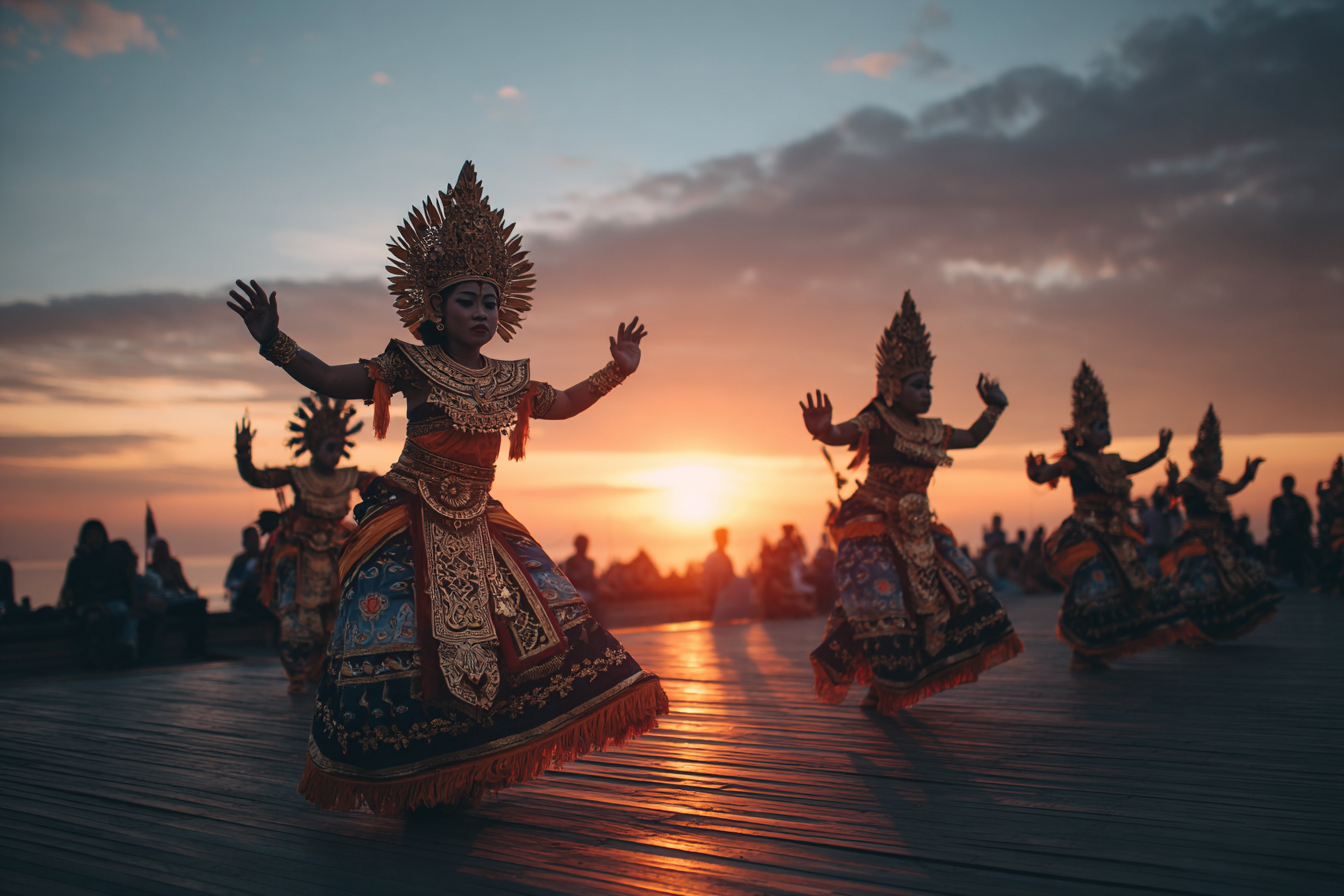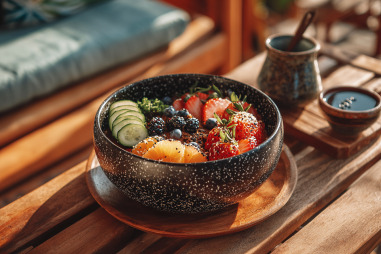Ubud, often regarded as the cultural heart of Bali, is a treasure trove of traditions, arts, and spiritual practices that define the island’s identity. Nestled amidst lush rice terraces and sacred temples, this town invites travelers to dive deep into the island’s rich heritage. Whether you are fascinated by intricate dances, captivating artworks, or ancient rituals, Ubud offers immersive cultural experiences that go beyond the surface of typical tourism. Exploring Ubud culturally means connecting with a living tradition, where every performance, craft, and ceremony is a vibrant expression of Balinese life.
Traditional Balinese Dance and Performance Venues
One of the most mesmerizing ways to experience Ubud’s culture is through its traditional dance performances. Balinese dance is a dynamic art form, blending intricate gestures, dramatic storytelling, and vibrant costumes. Ubud is home to several venues where these cultural treasures come alive every evening. The Ubud Palace, for example, regularly hosts traditional dances such as the Legong, Barong, and Kecak, each telling tales from Hindu epics and local folklore.
Attending a dance performance here is more than just watching a show; it’s stepping into a world where movements and music convey deep spiritual and historical meanings. Many performances are accompanied by the Gamelan orchestra – an ensemble of traditional instruments whose rhythms and melodies perfectly complement the dancers’ expressive motions.
For a more intimate experience, smaller venues and community centers often offer dance workshops or interactive shows where visitors can try learning some of the basic movements themselves, deepening their appreciation of this beautiful art form.
Ubud Art Workshops: Painting, Batik, and Wood Carving
Ubud’s reputation as Bali’s art hub is well-earned, and participating in hands-on workshops is an excellent way to connect with local craftsmanship. Many studios and art schools around Ubud offer workshops that welcome novices and experienced artists alike.
Painting workshops typically introduce visitors to Balinese styles, including the famous Kamasan paintings that narrate Hindu legends with vivid imagery. In batik workshops, you can learn the wax-resist dyeing technique used to create colorful fabrics often worn by locals during ceremonies. Watching the meticulous process of drawing with hot wax on cloth and then dyeing the fabric makes it clear why batik is considered both a craft and an art form.
Wood carving is another celebrated art in Ubud. Skilled artisans use traditional tools and time-honored techniques to carve intricate designs ranging from mythological figures to decorative masks. Participating in a wood carving workshop offers a glimpse into the patience and creativity required to preserve these cultural practices.
Participation in Temple Ceremonies and Festivals
One of the most profound ways to experience Ubud’s culture is by witnessing or participating in temple ceremonies and festivals. Bali is known as the “Island of the Gods,” and spirituality is woven into daily life. Numerous temples around Ubud host regular ceremonies, ranging from small offerings made by families to grand festivals that draw crowds from across the island.
Being present during these ceremonies lets visitors observe sacred rituals, traditional music, and the communal spirit that unites Balinese people. Guests are often welcome to join in the festivities respectfully, provided they follow local customs, such as wearing a sarong and temple sash. Some popular ceremonies include the Galungan festival, which celebrates the victory of good over evil, and the Odalan temple anniversary, marked by vibrant performances and offerings.
Joining a ceremony with a knowledgeable guide can enhance understanding by explaining the symbolism and significance behind each ritual, deepening your insight into Balinese Hinduism and culture.
Visiting Local Villages for Authentic Experiences
Beyond the town center, the surrounding villages of Ubud offer genuine cultural encounters that feel tucked away from the usual tourist paths. These communities maintain traditional lifestyles, arts, and agricultural practices that have been passed down through generations.
Visiting villages such as Mas, renowned for wood carving, or Penestanan, known for its painters’ studios, allows visitors to see artists at work in their natural environment. In these villages, you can often meet local families, learn about their crafts, sample traditional Balinese cuisine, and gain an authentic perspective on rural life.
Some villages also offer cultural tours that include participation in daily activities like rice planting, cooking local dishes, or attending traditional dance classes—providing enriching, hands-on experiences that foster meaningful cultural exchange.
Exploring Ubud’s Art Galleries and Museums
For those keen on deepening their knowledge of Balinese art and history, Ubud is home to a wealth of galleries and museums showcasing a diverse range of works. The Agung Rai Museum of Art (ARMA) is a standout, with collections spanning classical and contemporary Balinese paintings, sculptures, and ethnographic exhibits.
The Neka Art Museum is another must-visit, offering an extensive array of traditional Balinese and Indonesian art, alongside works inspired by Western artists who found inspiration in the island. These museums provide context for the rich artistic expressions found in Ubud, featuring detailed explanations and guided tours that connect visitors with the cultural narratives behind the art.
Smaller galleries scattered around the town display pieces by emerging artists, giving insights into the evolving contemporary art scene that still remains deeply rooted in Balinese culture.
Yoga and Meditation Retreats Reflecting Spirituality
Ubud’s cultural richness is tightly interwoven with its spiritual traditions. The town has long been a haven for seekers of inner peace, offering numerous yoga and meditation retreats that emphasize Bali’s unique blend of Hindu spirituality and mindfulness practices.
Many retreat centers integrate cultural elements into their programs, such as Balinese purification rituals, chanting, and visits to sacred sites. Participating in these retreats allows visitors to engage with Balinese spirituality on a personal level, exploring inner balance while surrounded by the serene natural beauty of rice paddies and jungle.
Whether you are a seasoned yogi or new to meditation, the gentle guidance and the cultural context provided by Ubud’s centers make it a transformative experience that enriches your understanding of Balinese ways of life.
Ethical Cultural Tourism Practices
Engaging with Ubud’s culture responsibly is key to preserving its authenticity and supporting local communities. Ethical tourism means respecting traditions, seeking permission before photographing people or ceremonies, and purchasing artworks and crafts directly from local artists to ensure fair compensation.
Visitors are encouraged to be mindful of cultural sensitivities, such as dress codes when visiting temples or attending ceremonies, and to avoid behaviors that could be deemed disrespectful. Supporting community-based tourism initiatives and workshops helps sustain traditional art forms and the livelihoods of local artisans and performers.
By embracing ethical tourism practices, travelers ensure that Ubud’s cultural heritage continues to thrive for generations to come while having a genuinely enriching and respectful experience.
Enrich Your Ubud Trip with Culture
Discovering Ubud’s cultural landscape means immersing yourself in a vibrant tapestry of dance, art, spirituality, and community life. Each experience—from watching a traditional dance at the palace to carving a wooden mask alongside a local artist—offers a new window into the heart and soul of Bali.
By engaging fully and respectfully, you not only create unforgettable memories but also contribute to preserving the unique heritage that makes Ubud a cultural jewel. Whether you are drawn by the allure of its ceremonies, the beauty of its art, or the peace of its spiritual retreats, Ubud invites you to connect deeply with Bali’s timeless culture.







